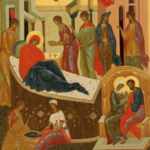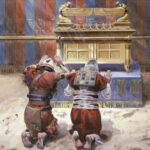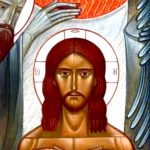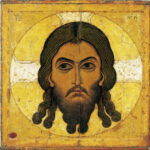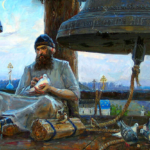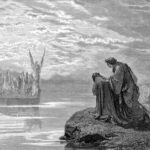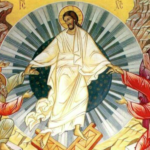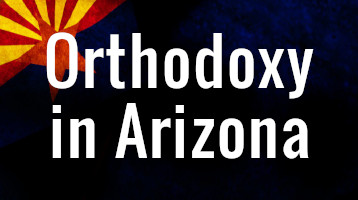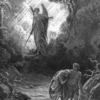Your Nativity, O Virgin, has proclaimed joy to the whole universe! The Sun of Righteousness, Christ our God, has shone from you, O Theotokos! By annulling the curse, He bestowed a blessing. By destroying death, He has granted us eternal life. -Troparion of the Feast The first Great Feast to fall in the Church Year is the Nativity of the Most-Holy Theotokos. It is entirely fitting that at the beginning of the new religious year all Orthodox Christians should come before the highest example of human holiness that the Orthodox Church holds precious and venerates — that of Mary, the Theotokos and Mother of God. This day is seen as one of universal joy; for on this day — the boundary of … [Read more...]
Arizona Pastors Urge Flocks to VOTE NO on Prop 139
A grassroots effort has begun to unify Arizona Christian pastors around the sanctity of human life while providing a clear voice against the proposed “Arizona Abortion Access Act” (Prop 139) that will most likely be on the ballot November 2024. The proposed constitutional amendment called “The Abortion Access Act” makes abortion a “fundamental right” in Arizona. It puts that newly created right above the health and safety of girls and women and the life of the unborn. The amendment is written so broadly that, according to attorney analysis, it: Allows unlimited abortion up to birth under the broad “mental health” exemption that is frequently used to rubber stamp late-term abortion. … [Read more...]
ASONA Feast Day: Hierarchical Divine Liturgy
On Sunday, July 14, 2024, ASONA celebrated our Patronal Feast, and the hierarchical visitation of Bishop James of Sonora. It was the first time one of our bishops attended the new location for ASONA. A feast followed the Hierarchical Divine Liturgy. Here is a photo gallery of the event. … [Read more...]
Is There Such a Thing as Moral Heresy?
Apologetic students take notes! by Fr. John Whiteford We have previously discussed Aristotle Papanikolaou's strange notion that, unlike the dogmas of the Church, Orthodox Christian morality is open to dispute and change (see The Living Church 2.0). In the wake of a recent conference in Oxford of Orthodox "scholars, pastors, clinicians, and other experts" who gathered to "dialogue" about LGBTQP+ issues, Papanikolaou has asserted that never in the history of the Church has the term "heresy" been used to describe a false teaching on a moral issue. In the course of a Twitter exchange about the problems with this conference, I commented: "It's the idea that holding the position that … [Read more...]
Is the Veneration of the Cross Idolatry?
by Fr. John Whiteford If we look at the Scriptures and to Jewish custom, the answer is clearly “No.” Another grand slam from the Bible – from Fr. John’s “Stump the Priest” column Question: How would you answer a Protestant who considered our veneration of the Cross (bowing down before it and kissing it) to be idolatry? First we should consider whether or not bowing down before something or kissing it entails the worship of adoration that is due to God alone. If we look at the Scriptures and to Jewish custom, the answer is clearly “No.” Abraham bowed himself before the people of Hebron (Genesis 23:7, 12); Joseph’s brothers bowed before him (Genesis 42:6; 43:26, 28); and many other … [Read more...]
Why Did Christ Need Baptism?
A question asked by many is, “Why did Jesus need to be baptized?” To answer this, let’s first explore the nature of baptism as explained by Saint John Chrysostom. Jewish Baptism Saint John Chrysostom points out that the Jewish Baptism was one of cleansing. He says, There was a Jewish baptism, which cleansed from bodily impurities, but not to remove sins. Thus, whoever committed adultery, or decided on thievery, or who did some other kind of misdeed, it did not free him from guilt. But whoever touched the bones of the dead, whoever tasted food forbidden by the law, whoever approached from contamination, whoever consorted with lepers — that one washed, and until evening was impure, … [Read more...]
On the Essence of Icons, by St. Photios
by St. Photios the Great St. Photius, Patriarch of Constantinople, preached a sermon on the day the icon of the Theotokos was dedicated in Hagia Sophia, 29 March 867. In the notes introducing the English translation of the sermon, we find this comment: “In the eyes of Photius, painting is the most direct form of instruction, for a picture that is in agreement with religious truth contains the eidos, or essence, of the prototype, which is in turn apprehended by the faculty of sight and indelibly imprinted upon the mind. A painter is guided by divine inspiration, so that his work is not merely mimetic, but contains an actual share of the prototype. One would look in vain for a better … [Read more...]
Who Invented Church Bells, and What Are the Rules for Ringing Them?
On February 5, the Church celebrates the memory of St. Paulinus the Merciful. The appearance of church bells and bell ringing in Europe is associated with his name. In Russia, where bells came along with Christianity, the art of bell ringing acquired its own specific characteristics over time. Saint Paulinus the Gracious lived in the 5th century. He received a good education, at the age of 20 he became a senator, and a little later the proconsul of the Campania region in Italy. Subsequently, for the sake of serving God and his neighbors, the saint decided to abandon his public career: he accepted holy orders, and then was elevated to the rank of bishop and became the bishop of the city of … [Read more...]
Where is our Bliss in Paradise if our Loved Ones are in Fiery Gehenna?
by Priest Alexei Taakh The idea that God created such a “concentration camp” for eternal and cruel torture of sinners is nonsense. He is Love, He came down into our world and suffered for us; He taught love and forgiveness… And then He suddenly turned into a ruthless executioner and tortures His children everlastingly as punishment for several years of sinful life? It is nonsense. “After the general resurrection we will meet with our kin and friends. This long–awaited meeting and the life of the age to come is the fundamental hope of Christians. This is how we console ourselves after the deaths of our loved ones. But after the Last Judgment not everyone will inherit the Kingdom of … [Read more...]
“Children, It is the Last Hour”
by Fr. Lawrence Farley It is sometimes imagined that the Resurrection of Christ finds its full significance as the last happy chapter in the story of His life, so that after a gruelling chapter about His betrayal, arrest, crucifixion, and burial, the tale can end with the Evangelist concluding, “And He lived happily ever after”. Consistent with this is a theological view which finds the sole significance of His Resurrection as proof that the price Jesus paid for our sin on the cross was accepted by the Father—that is, the Father indicated that the price Jesus paid by dying for our sins was fully sufficient. In this view, the Resurrection of Christ had no salvific value such as did His … [Read more...]
- « Previous Page
- 1
- 2
- 3
- 4
- …
- 10
- Next Page »
